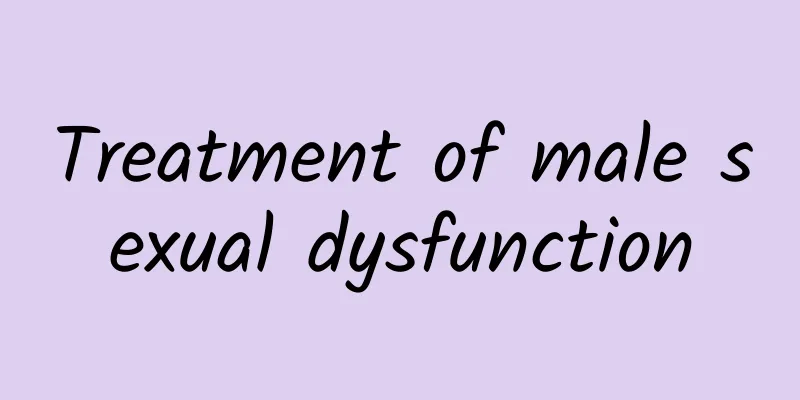How to solve the problem of frequent urination at night for men

|
In fact, due to the onset of prostatitis, many people have different degrees of frequent urination, urgent urination, and incomplete urination. Moreover, patients not only urinate frequently during the day. The symptoms of frequent urination at night are even more painful. If these patients have a prostate fluid test, it is often found that it is caused by prostatitis. What should patients who urinate frequently at night do? 1. Antimicrobial therapy The discovery of known urinary tract pathogens in prostatic fluid culture is the basis for selecting antimicrobial treatment. If rare pathogens or commensal bacteria are found in the urogenital tract, they cannot be determined to be the causative pathogen. If patients with non-bacterial prostatitis have signs of bacterial infection and general treatment is ineffective, antimicrobial treatment is also appropriate. When choosing antimicrobial drugs, it is necessary to pay attention to the presence of a prostate-blood barrier composed of lipid membranes between the prostatic acini and the microcirculation, which hinders the passage of water-soluble antibiotics and greatly reduces the effectiveness of treatment. Some bacteria secrete a glycoprotein matrix that prevents antibiotics from approaching bacteria. When prostatic stones are present, the stones can become a shelter for bacteria. The above factors make chronic bacterial prostatitis difficult to treat, requiring a long course of treatment and prone to relapse. Whether nonbacterial prostatitis is suitable for treatment with antibiotics is still a clinical debate. There is evidence that patients who have used quinolones in the past have false negative results in urine culture of prostatic fluid or after prostate massage. Chlamydia trachomatis and mycoplasma can cause prostatitis, but ordinary cultures will not have positive results. In addition, for patients with prostate symptoms, about 40% of patients can achieve efficacy with a course of antibiotic treatment. Therefore, patients with "aseptic" prostatitis are also suitable for the use of drugs that are effective against bacteria and mycoplasmas, such as quinolones, SMZ-TMP or TMP alone, used in combination with tetracycline and quinolones or used intermittently. If antibiotic treatment is ineffective and it is confirmed to be aseptic prostatitis, antibiotic treatment should be discontinued. Warm reminder: Don't be depressed because of prostatitis. You should seriously understand the prognosis of prostatitis. If patients with acute prostatitis undergo active treatment, the prognosis is often better. In fact, most patients with prostatitis can recover completely after the acute stage. If not treated, a small number of patients will develop chronic disease. |
<<: How to pay attention to the circumcision line?
Recommend
What are the basic yoga movements for men?
As people in modern society have a deeper underst...
How to control ejaculation
With the development of socialism, people's l...
My boyfriend is not feeling well and has chest tightness and vomiting blood.
Everyone's health is different. Some people d...
What can testicular ultrasound detect?
Male reproductive health is extremely important i...
Is it normal for a 12 year old to have spermatorrhea?
Male friends will have obvious frequent spermator...
How can men enhance their sexual function?
As they age, and the freshness between couples de...
A complete list of kidney-tonifying foods, how many do you know?
I believe that most of the male compatriots in li...
Treatment methods for back pain, pay attention to the following matters
In modern life, people often sit for long periods...
How to take care of men's hair
In our impression, men are often unkempt, and the...
What's the matter with a lump on the penis that looks like acne?
The male penis is a very private part. Various sk...
What is a successful man? Characteristics of a successful man!
What kind of man is considered successful? Some p...
How to treat hyperthyroidism? Several methods of treating hyperthyroidism
Hyperthyroidism, also known as hyperthyroidism, h...
How long does it take to masturbate?
How long is normal for masturbation? Masturbation...
Treatment of Gynecomastia
Breasts are secondary sexual characteristics that...
What are some ways for men to lose weight through exercise?
There are many ways for men to lose weight, but t...









